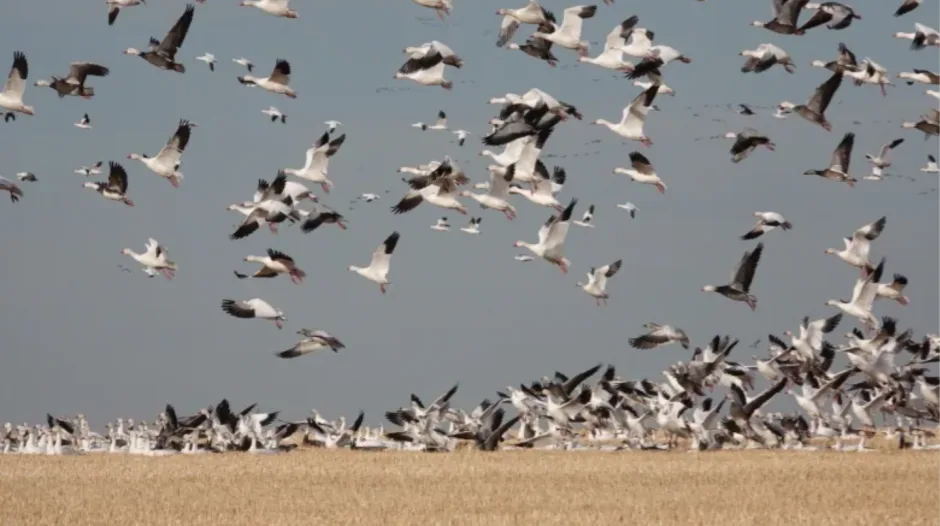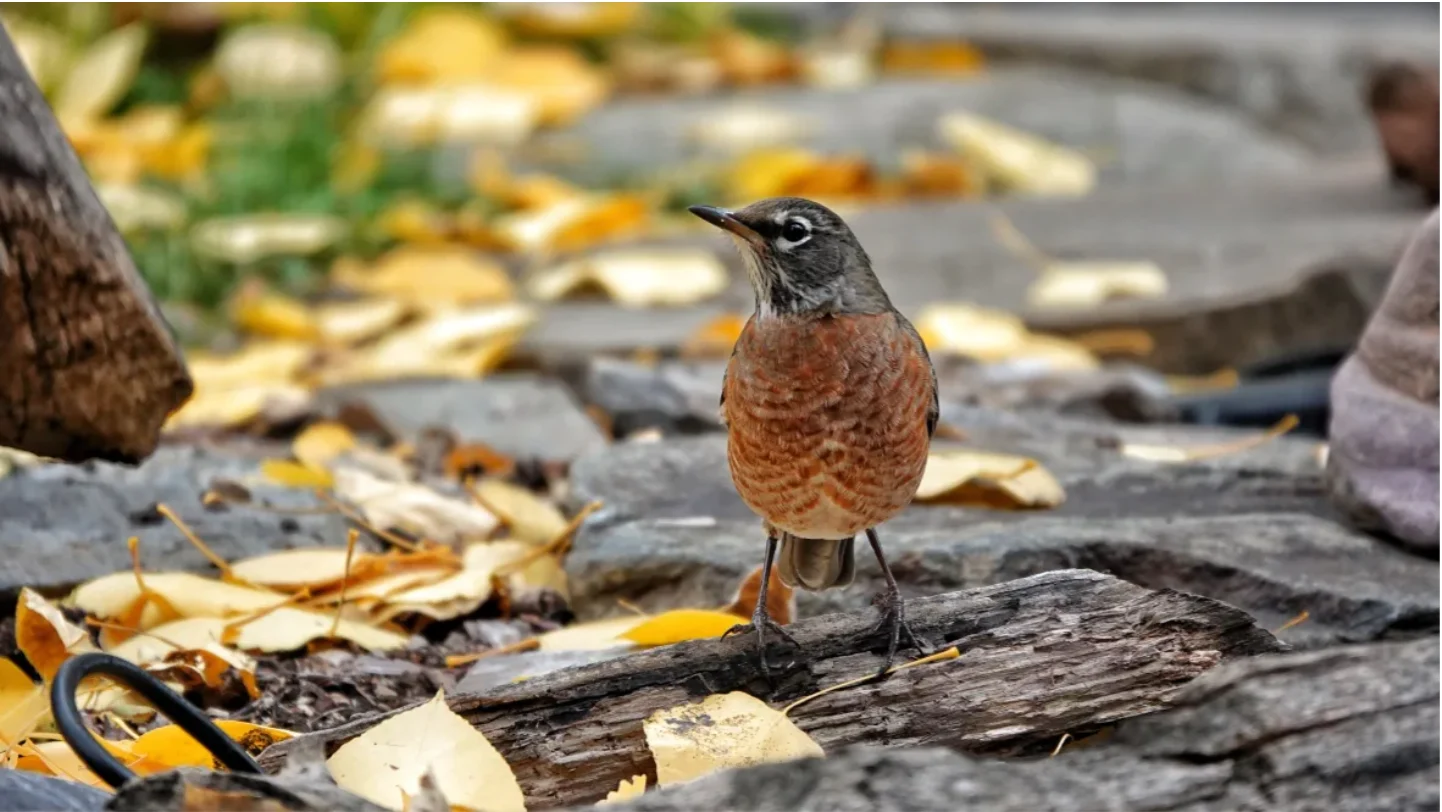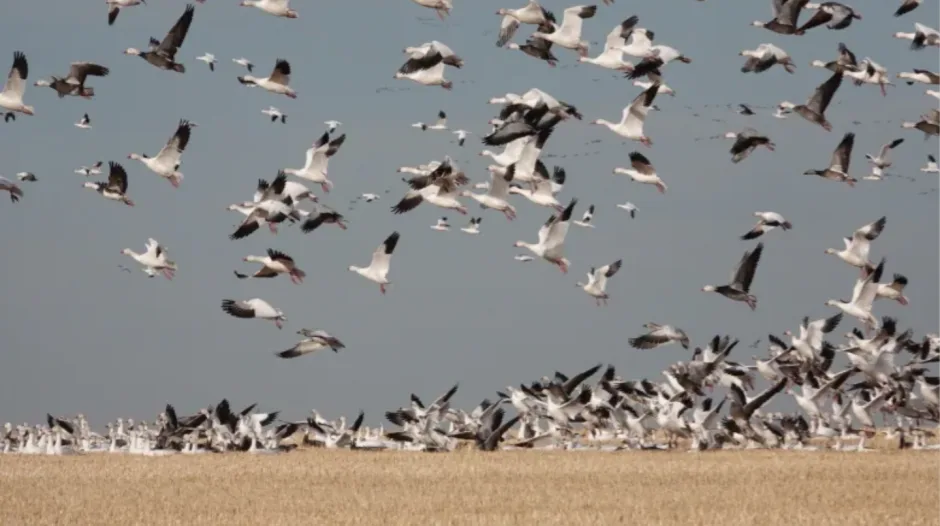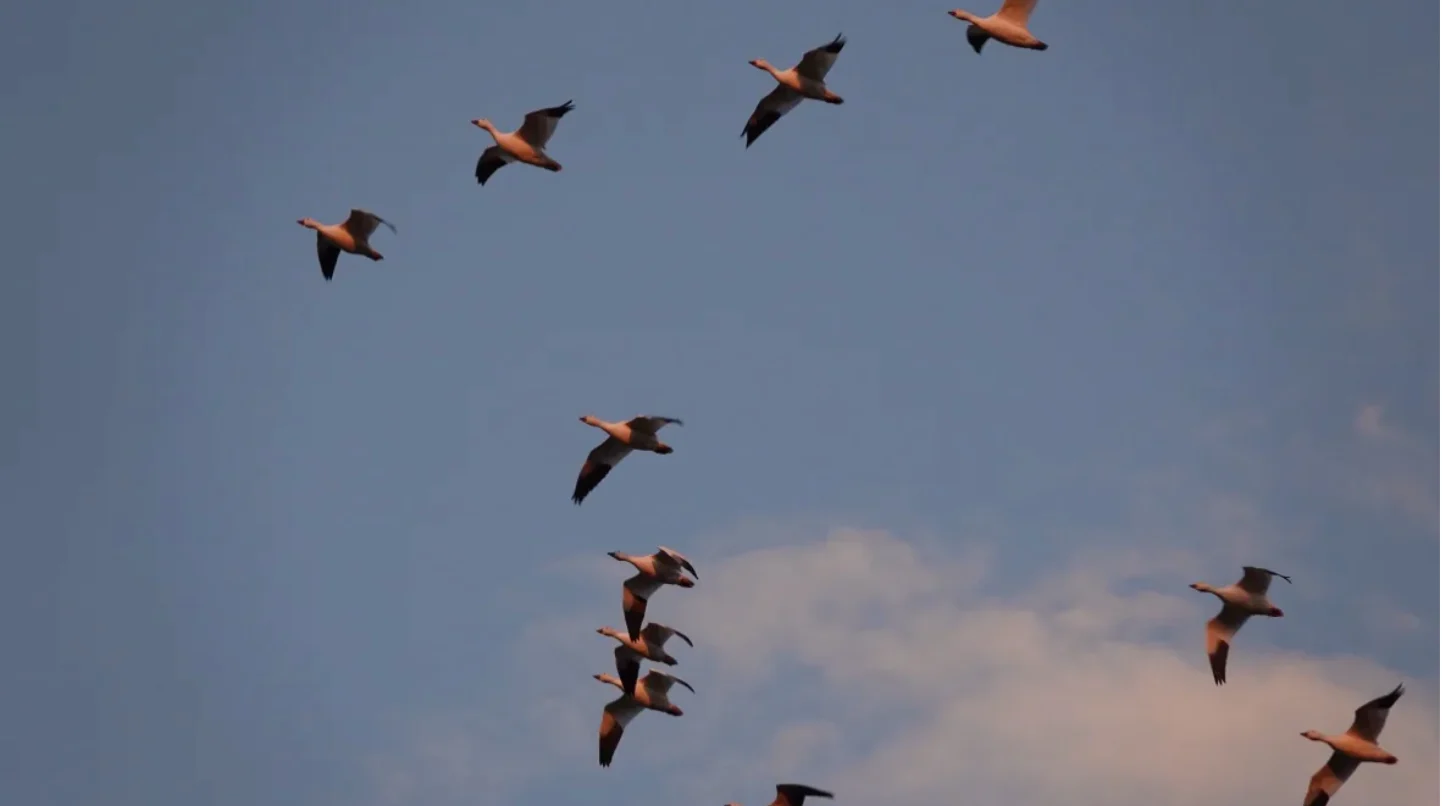
Cold weather brings more snow geese and robins to southern Alberta
As the cold weather blows in, Alberta birdwatchers will notice the migratory patterns of some birds passing through the province are changing.
Naturalist Brian Keating talked to The Homestretch on Monday about the influx of some birds to southern Alberta.
This interview has been edited for clarity and length.
Question: What have you noticed about birds at this time of year?
Answer: Well, on Thursday, Friday and Saturday, I had the one of the largest eruptions of American robins ever in my backyard.
I could look out the windows of both my front and backyards and easily count no less than a dozen robins.
These are likely northern nesting birds moving south in what I think is one of nature's most fascinating phenomena: their twice-annual migration.

Keating says he counted almost 40 robins in his backyard beefing up on food. (Brain Keating via CBC News)
Q: Why was there such a huge influx of robins right now?
A: The robins were tanking up on high-energy food. I've got three or four mountain ash trees in my yard, and they've produced really good berries this year.
They were also on the ground looking for insects, and they were pushing leaf litter around. They were flipping wood chips and leaves like crazy.
But then on Sunday, when the wind blew in, virtually all the birds disappeared, and I think they took advantage of that opportunity to be pushed on their migratory journey. And that, of course, saves important energy that they need to complete that migration.

There has been an influx of a snow geese and other species due to migratory patterns changing, according to naturalist Brian Keating. (Brain Keating via CBC News)
Q: What other changes have we seen from birds?
A: My friend Greg Wagner, he's a prominent High Rver naturalist who is the volunteer caretaker of Frank Lake, a restored wetland located six kilometres east of High River, Alta.
Frank Lake is officially called an important bird area. He said that, surprisingly, the lake's been kind of in the doldrums for the last month, with not a lot of species and diversity, but all that changed last week.
Greg thinks that it's the cold weather that's now descending down into Alberta that's starting to push the birds down from the north.
But just in recent days, Greg has seen at least a dozen more species of ducks come in.

Snow geese have started to arrive at Frank Lake near High River this past week, says Keating. (Brian Keating via CBC News)
But the big news he had for me yesterday was the unbelievable numbers of snow geese that have suddenly arrived.
He said there's at least 3,000 on the lake, and he's expecting up to maybe 5,000.
But he also told me that the first 20 or so trumpeter swans have arrived, and they should be numbering in the thousands over the next month.
The trumpeter swan story is a real conservation successes, which is good to hear these days.
For more fascinating stories about Alberta's wildlife from naturalist Brian Keating, visit his website and check out these stories:
This article was originally published for CBC News.









